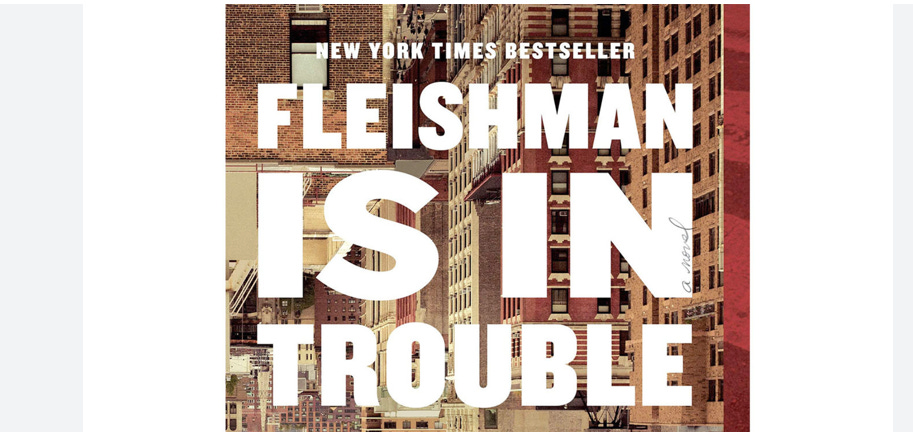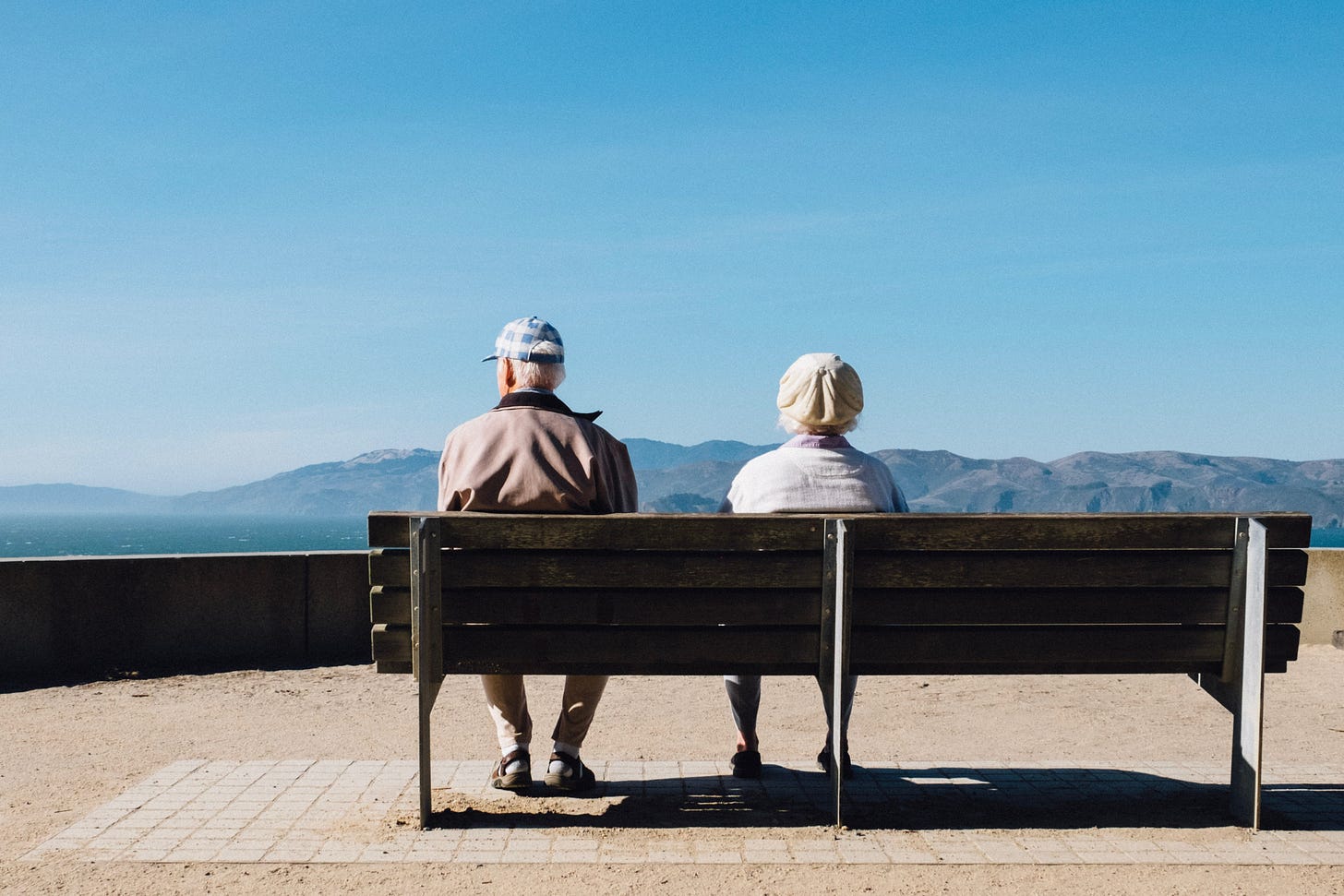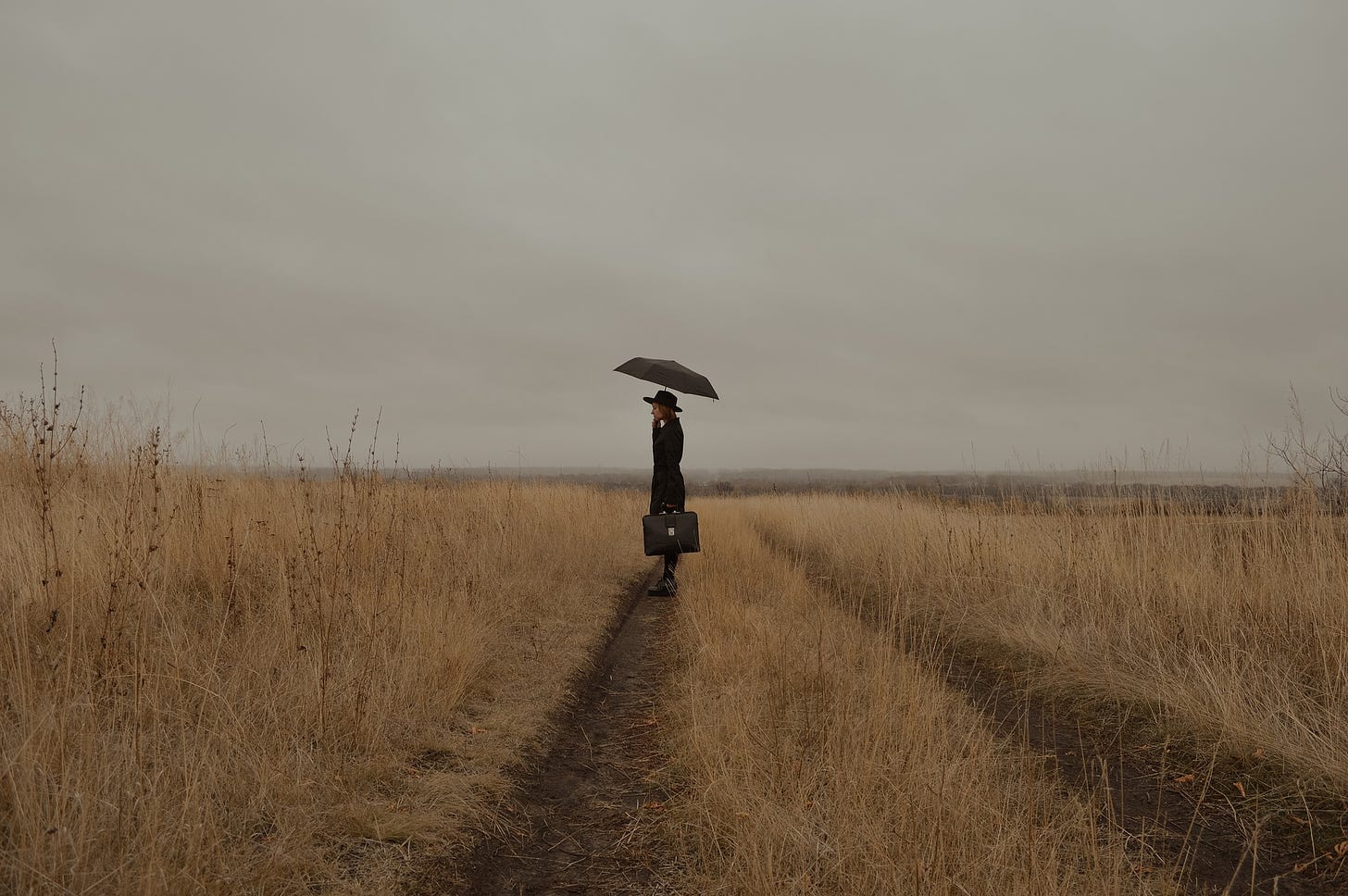*This article contains spoilers from the Hulu show, Fleishman is in Trouble. It helps to have seen or read it, but it’s not a requirement to read this.
My husband watched most of Fleishman is in Trouble with one eye on the television and the other eye toggling between me and our front door.
I wouldn't consider myself a flight risk. Not in the character, Rachel sense, which turned out to be just as mental as it was physical. Even though I teach yoga, I have yet to go on a retreat and never return. It’s tempting, but I’ve come home every time, so far.
And though I have my fair share of mental health challenges, including postpartum depression and postpartum anxiety, in addition to my every day-generalized-anxiety, I feel like I’m still a good distance from newspapering my windows and compulsively ordering beef lo mein.
But the way the character, Libby “left” her family? Libby, who was portrayed so brilliantly by Lizzy Caplan you have to wonder if she was improvising or actually reading lines. Libby’s absence is a different story.
Nevermind the fact that Libby is a 40-year old, Jewish, brunette, features writer, and mom of two, just like me. I resonated most with her ability to be mentally and physically there with her family and yet still not present. It was like her soul had left her body.
I felt understood and personally attacked all at once and I was angry.
But I wasn’t angry at Libby for checking out on her family. Or Taffy Brodesser-Akner for creating this facsimile of me (it’s worth noting that Libby’s character has a lot of pieces of Brodessor-Akner, too. Twinning!) I was angry that hardly any reviews of the series or chat forums were talking about what I found to be one of the deeper messages behind the story.
Fleishman is in Trouble isn’t about mothers who leave their kids behind. It is about mothers who leave themselves behind.
When the first episodes were released, people who hadn’t read the novel kept talking about the warring divorce aspect of the plot. Or the mid-life crisis every character seemed to be experiencing. Admittedly, I was also a little angry at suddenly being called middle aged. But then Brodesser-Akner whiplashes us about three quarters of the way through the story and when we finally get to see Rachel’s side, we realize, “oh shit, this story is about motherhood.”
But it’s not about motherhood being hard or “a drag” as one article cheekily surmises it. Nor do I think it’s a story about the challenges of balancing a career and being a mother, as others have theorized.
What Brodesser-Akner does so brilliantly, that even my husband seemed to not get it, was to make us all think that the story is about moms who have left their families behind, but I think it is really about how many women are forced to leave their true self behind when they become mothers.
And I’m angry that no one is talking more in depth about this.
I’m angry that reviews say “divorce” and “midlife crisis”, but not “a mother’s forced abandonment of self.”
I’m mad that there are a plethora of stories saying the book/show paints a grim picture of motherhood, but no one is asking why is motherhood so grim?
I’m angry that we are all fixated on Rachel’s breakdown, but not talking about her traumatic birth, which was so rawly portrayed, it triggered aspects of my own traumatic birth that I had blocked out.
I’m angry that everyone is talking about how Libby was checked out and what a “good dude” her husband Adam is (played by Josh Radner who hauntingly looks like my husband). But no one is talking about the fact that she was all but pushed out of her body when her career smooshed up against the glass ceiling.
Or how as “good of a dude” as her husband is, he’s clearly not picking up on the fact that something is amiss. He never once asks, “Are you happy staying at home?” and instead resentfully picks up the slack with the kids, which also has me wondering, is it really slack? Or is he just suddenly doing his fair share?
One of the last things the character Libby narrates to us is how at this mid-life and mid-motherhood point you find yourself pining for earlier days when everything was still possible, when you were still you. But I have to wonder, as someone who is terrified of losing myself in the role of mother and who clings on to all aspects of her identity separate from ‘mom’, are you really no longer you after having kids? Why can’t you keep doing the things you always wanted to do? Who is stopping you? Who was stopping Libby?
Yes, financially taking care of young children in this country is almost impossible. Yes, I give our daycare more money than I make. Yes, we’re not able to hop on a plane to anywhere in the world as we may have thought we could when were just a couple, but are those things really what choice entails? That’s a pretty privileged view if so.
I think choice is about choosing yourself when every person in your family wants a piece of you. It’s about locking the door to the bathroom so you can have a minute alone. It is about continuing your career even though the numbers don’t add up, because it helps you have an inkling of you. To me those are the choices that matter most and those are the life rafts that help us remain afloat as individuals in the torrent sea that is motherhood.
When the end credits began, I all but ran to the chat rooms hoping to have an in-depth dialogue about all of these things. But no one was talking about it. Instead, it seemed like a bunch of men talking about what absent mothers Libby and Rachel are, or a young Gen-Zer saying what a ‘drag’ motherhood is.
I felt alone and angry.
“Did that show scare you?” my husband asked after the following day, seemingly joking, but I could tell he also needed to be reassured.
“No,” I answered honestly, “This is why I fight so hard to maintain a sense of self.” I think he got it, as he then seemed comfortable enough to take his eye off me and our front door.
But maybe the reason for the lack of discussion about these aspects is because we’re all exhausted from constantly fighting to balance our sense of self alongside being mothers. Who has time to rant online when you can’t even go to the bathroom alone?






